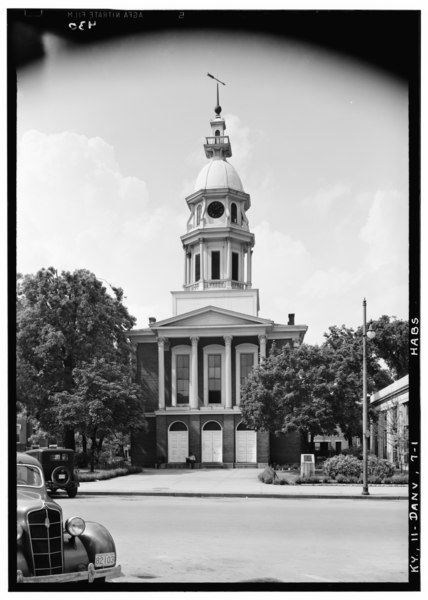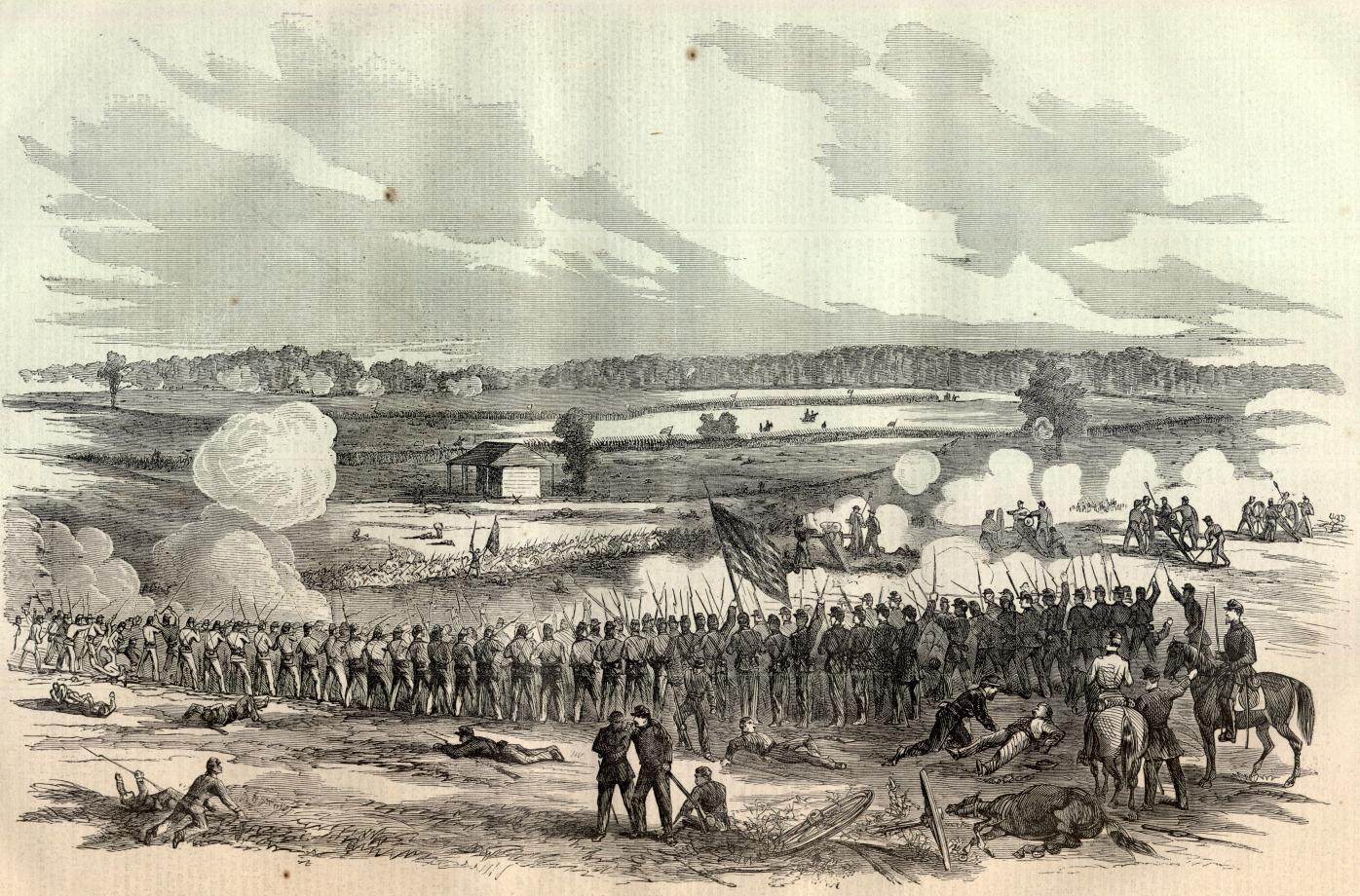Celebrate Kentucky History in Danville
 |
| Governor's Circle |
Danville is a small town in the center of Kentucky with a
large history. It played an important role in the development of Kentucky as a
state and, along with nearby Perryville, an important role in the keeping
Kentucky in the Union during the Civil War.
Danville Kentucky
Danville is an old town by Kentucky standards. It dates back
to the 1770’s making it one of the first European settled towns in the
territory. It was first settled in 1774 by John Crow, and became an actual town
when Walker Daniel bought 76 acres and designed the town grid in 1783. At that
time this area was part of the state of Virginia. Danville hosted several
conventions leading up to Kentucky gaining independence and becoming a state.
In 1788 Virginia gave its permission for Kentucky to become independent and in
1792 Kentucky became the fifteenth state, and Danville was its first capital.
 |
| Boyle County Courthouse 1940 - See page for author [Public domain], via Wikimedia Commons |
Danville’s history is present for all to see in Constitution
Square, a park in the center of town that has become home to replicas of
many important buildings from Danville’s history. The one original building
left is the Post Office. The also includes replicas of the original jail, the
Presbyterian Meeting House and Greyson’s Tavern. The entrance at the northwest
corner passes by the Governor’s Circle which is built around a statue of two
men taken from the state seal and flag. There is a plaque commemorating each of
Kentucky’s governors. Nearby are two historical markers dedicated to the role
of African Americans in fighting for the Union forces during the Civil War.
 |
| Danville Jailand courthouse |
 |
| Grayson's Tavern |
 |
| Boyle County Courthouse 2015 |
Danville has been home to several colleges since it was
first formed. Transylvania University was founded there in 1783 before moving
to Lexington. Today it is home to Centre College a small liberal arts college.
Four other universities and colleges have satellite campuses in Danville.
We also found two very good restaurants. One was Jane Barleycorn’s Market and Bar. The
food was fresh and locally sourced. We had a wonderful dinner there. For
breakfast we went to The Hub
Coffee House and Café. Excellent coffee and breakfast wraps.
Perryville Battlefield – Perryville KY
Ten miles from Danville is the site of the Perryville
Battlefield. Perryville was an important battle during the Civil War. Like
Maryland, Kentucky was a slave state that did not leave the United States in
1861. In the fall of 1862 the Confederate Army made an attempt to tear the
border slave states away from the Union. I have always loved walking around
battlefields. It is often hard to understand battle tactics, but walking around
you get a very good feel for what happened. It helps that the state of Kentucky
has put together a very good walking trail (of about 2 miles) that covers the
main parts of the battle, and over 20 miles of walking and driving trails in
total. The trail have been set up with places to stop that include very good
explanations and battle maps.
 |
| See page for author [Public domain], via Wikimedia Commons |
What really struck me is that as I was walking around the
site, it was easy follow why the Confederate Army might have had what some
people call a tactical victory, but still lost the day. The main forces were The Army of Ohio under
General Don Carlos Buell against The Army of Mississippi under General Braxton
Bragg. As the two armies faced off, the Army of Mississippi took the offensive
and attacked the lines of the Ohioans. But the General Buell’s forces had
greater numbers and they had set up a series of defensive lines along a
sequence of hill tops. This meant that as General Bragg’s troops advanced, they
were forced to constantly fight literally up-hill battles, leaving casualties
strewn across the battlefield. By the
end of the day, even though they had “won” many of the skirmishes, they were in
no condition to continue, especially as the Union forces were being reinforced.
Bragg was forced to retreat to Danville, and back through the Cumberland Gap.
 |
| Union Memorial at Perryville Battlefield Site |
Walking through the fields and hills of battle site, you can
see why the battle turned out the way it did. The rolling hills were steep
enough to give serious advantage to whomever could control the top of the hill,
and that was always the Union Army. Now, I am no historian, but I believe that
this win for the Union Army was well planned and thought out. They knew that
the Confederates had to be on the offense, so they created a series of
defensive lines that allowed them to force the Confederates to constantly fight
from inferior and more dangerous positions.
 |
| Looking uphill at a Union Army position |
 |
| View from the top of the hill, note the fence where many confederate troops were stopped |
 |
| Fence line along the road |
The Battle of Perryville, along with the Battle of Antietam,
played a key role in the Civil War. The first two years had been mostly wins
for the Confederacy. President Lincoln was looking for an appropriate time to
announce the Emancipation Proclamation, and these two Union victories, less
than a month apart, gave Lincoln that opportunity.
| http://www.civilwar.org/education/history/emancipation-150/eman-proc-doc.jpg |
I would love to come back to Kentucky. There is the whole
Bourbon industry that I would love to explore. But if I do, I plan and passing
through this part of Kentucky again.
Getting There: Danville
sits at the junction of U.S. 150 which comes southeast from Louisville and U.S.
27 which come south from Lexington.






Comments
Post a Comment